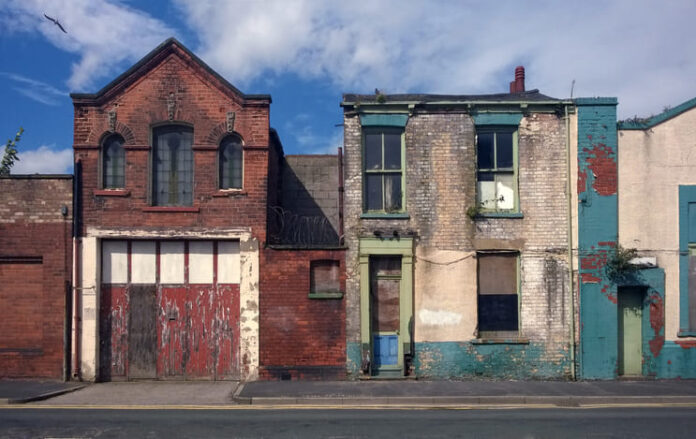Housing disrepair is more than just an inconvenience—it can have significant consequences on your health, especially if you are an active individual or engaged in sports. Damp, mould, poor ventilation, and faulty heating systems can all lead to health problems that not only affect daily life but also hinder athletic performance. However, the power of sports and physical activity can play a crucial role in fighting the aftermath of these health issues, helping you recover and regain strength.
Housing Disrepair and Its Impact on Health
Many tenants across the UK face disrepair in their homes, and this can lead to a variety of health issues. According to recent studies, housing disrepair—such as damp, mould, and poor air quality—affects more than 1 million households, with an increasing number of individuals reporting related health problems.
Let’s explore how specific housing disrepair issues can affect your health, especially if you’re into sports and fitness.
1. Damp and Mould: Respiratory Issues
One of the most common issues is the presence of damp and mould disrepair. These conditions can trigger respiratory problems such as asthma, allergies, and bronchitis. For athletes or anyone involved in regular physical activity, breathing problems can severely limit performance and recovery.
Consider the case of Jake, an amateur footballer, who started noticing breathing difficulties during training. His home had visible mould in the bathroom and bedroom, which was causing inflammation in his airways. Despite his fitness routine, his lung capacity suffered, making it difficult to maintain stamina during matches.
2. Faulty Heating: Muscle and Joint Pain
Living in a home with inadequate heating can result in cold, damp conditions. This can lead to muscle and joint pain, particularly for those engaged in regular sports activities. Cold environments force muscles to stiffen, making you more prone to strains, cramps, and injuries.
Sarah, a dedicated runner, found herself battling persistent joint pain after living in a cold, poorly heated flat. The cold in her home not only worsened her joint stiffness but also increased her risk of injury during her daily runs.
3. Poor Ventilation: Weakened Immune System
Homes with poor ventilation often trap dust, allergens, and pollutants, contributing to a weakened immune system. Those who regularly engage in sports and physical activities rely on a strong immune system for quicker recovery from intense workouts or competitions.
James, a regular gym-goer, found himself constantly falling ill, catching colds and other respiratory infections. After investigating the cause, he discovered the ventilation in his flat was inadequate, trapping moisture and dust, which led to an increase in airborne allergens and bacteria.
The Role of Sports in Recovery
While housing disrepair can negatively impact health, sports and physical activity can play a significant role in helping you recover from these effects. Here’s how engaging in regular exercise can support the recovery process and rebuild strength after facing health issues caused by housing disrepair:
1. Boosting Respiratory Health
For those suffering from breathing difficulties due to damp and mould exposure, engaging in cardiovascular exercises—such as running, swimming, or cycling—can help improve lung capacity and strengthen respiratory muscles. However, it is essential to ensure the mould issue is resolved first, as prolonged exposure can worsen the damage.
After Jake sought legal help to fix the mould in his flat, he gradually incorporated light cardio sessions into his training. His breathing improved over time, helping him regain his performance on the football pitch.
2. Increasing Flexibility and Joint Strength
Living in cold, damp environments can lead to stiff muscles and joints. However, sports and targeted exercises can aid in increasing flexibility and strengthening joints, even after exposure to poor conditions.
Sarah started incorporating yoga and stretching into her fitness routine to help loosen her stiff joints. Combined with strength training, this helped her gradually regain her range of motion and allowed her to return to her regular running schedule once her heating issue was resolved.
3. Strengthening the Immune System
Regular physical activity has been shown to boost immune function, helping you fight off illnesses. Moderate exercise increases the circulation of white blood cells, which helps your body detect and fight off infections faster.
James, who had been dealing with repeated illnesses, incorporated a balanced routine of strength training and cardio, along with proper hydration and nutrition, into his schedule. Over time, he found that his immune system grew stronger, and he was better able to avoid frequent colds after his ventilation issues were fixed.
4. Promoting Mental Well-Being
Housing disrepair can also take a toll on mental health. The stress of dealing with unresolved issues, combined with health problems, can lead to anxiety and depression. Engaging in sports and regular physical activity is one of the most effective ways to reduce stress and improve mood.
Endorphins released during exercise have been shown to combat feelings of stress and anxiety, making it a natural remedy for those dealing with the frustration of housing disrepair.
Taking Action against Housing Disrepair
If you’re facing health issues caused by housing disrepair, it’s essential to address the root problem first by taking action to ensure your home is repaired. Legal support is available to help tenants hold landlords accountable and ensure their homes are safe. Under the Landlord and Tenant Act of 1985, landlords are required to keep properties in good condition, and you may be entitled to compensation for any harm caused by disrepair.
When facing housing disrepair issues that impact your health, it’s essential to seek legal advice to ensure your landlord takes responsibility. Housing disrepair solicitors specialise in helping tenants understand their legal rights and take the necessary steps to get their homes repaired. They can assist in documenting evidence, such as photos of damage and medical reports, and send formal letters to the landlord demanding immediate action. In many cases, the involvement of a solicitor motivates landlords to act swiftly to avoid legal consequences. Additionally, a housing disrepair solicitor can help you claim compensation for any health issues, stress, or inconvenience caused by the disrepair.
Once your living environment is improved, incorporating sports and physical activity into your routine can help you recover from any health issues and regain your fitness.
Disclaimer: This article contains sponsored marketing content. It is intended for promotional purposes and should not be considered as an endorsement or recommendation by our website. Readers are encouraged to conduct their own research and exercise their own judgment before making any decisions based on the information provided in this article.




































